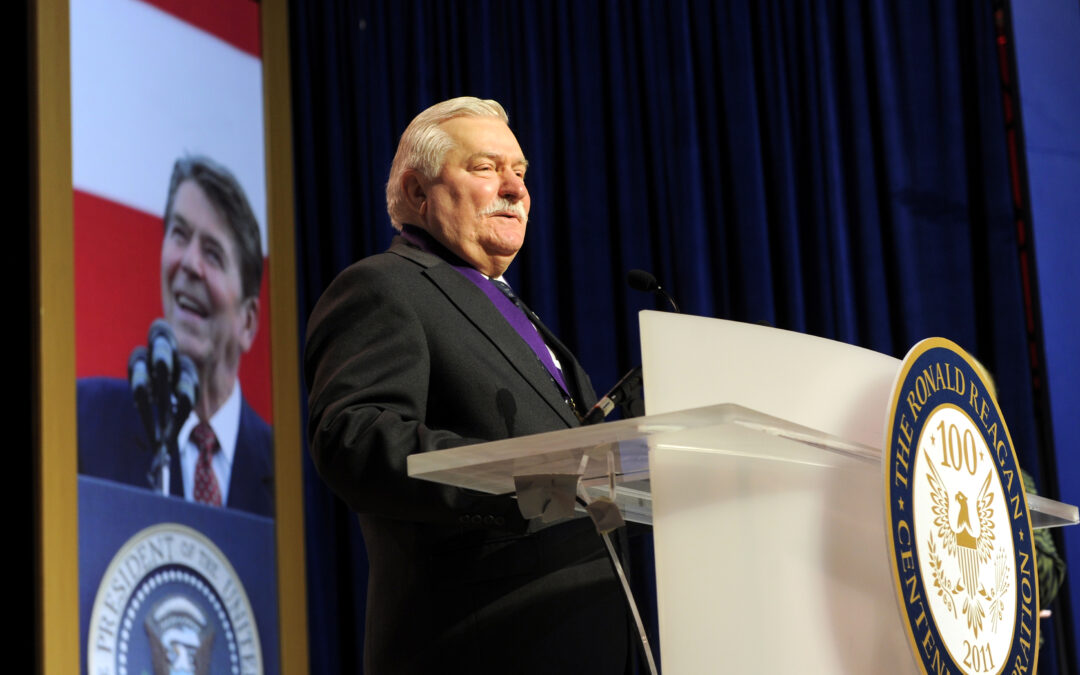Lech Wałęsa, the former president and Nobel Peace Prize winner, has been charged with making false statements in relation to longstanding claims that, before leading the Solidarity movement which helped bring down Poland’s communist regime, he collaborated with the communist security services.
The case concerns Wałęsa’s testimony regarding his alleged signatures on communist-era documents, which he claims are forgeries. Prosecutors have been seeking to charge him for giving false testimony about the files.
After previously failing to respond to summonses due to ill health, on Friday the former president was finally questioned as a suspect. He pleaded not guilty and refused to provide an explanation in response to the charges, reports RMF24.
In a subsequent post on Facebook, Wałęsa called the accusations against him “disgraceful” and “another slander attempting to discredit me in the eyes of public opinion and, consequently, diminish my role in history”.
Wałęsa is a prominent critic of Poland’s current government, and has claimed that the accusations against him are politically motivated. However, claims that he had in the 1970s – before founding Solidarity – been a paid informant of the security services under the code name “Bolek” have been made since the 1990s.
The current case relates to testimony made by Wałęsa in 2016 during criminal proceedings regarding the alleged forging of his signature in the security service files. Speaking as a witness, Wałęsa denied he had signed the documents.
But handwriting experts commissioned by prosecutors found the documents to be genuine, reports Onet. As a result, the Institute of National Remembrance (IPN) – a body regarded as being under government influence – began criminal proceedings against the former president.
That has now led to the charges of false testimony being filed against Wałęsa. That crime is punishable by up to three years in prison under Poland’s criminal code.
Wałęsa, then an electrician working in Gdańsk shipyard, co-founded Solidarity – the first recognised independent trade union in the Soviet bloc – in 1980. He and his movement went on to play an integral role in bringing down Poland’s communist regime, and helping to inspire a similar process in other countries.
He then became Poland’s first democratically elected post-communist president in 1990, serving a single term until 1995. Yet since then Wałęsa has also faced regular claims that he collaborated with the communist security services.
Last year, the then education minister said that schools should teach that Wałęsa was a communist agent. In 2017, the culture minister said he hoped that Wałęsa would always be presented in museums and textbooks as “Bolek”.
However, in 2017, after further evidence suggesting that Wałęsa had been a paid communist informant emerged, a poll by IBRiS for Rzeczpospolita found that 62% of Poles still regarded him as a national hero and 68% said that the new disclosures did not influence their perception of him.
Main image credit: Cherie Cullen/DoD (under public domain)

Daniel Tilles is editor-in-chief of Notes from Poland. He has written on Polish affairs for a wide range of publications, including Foreign Policy, POLITICO Europe, EUobserver and Dziennik Gazeta Prawna.




















